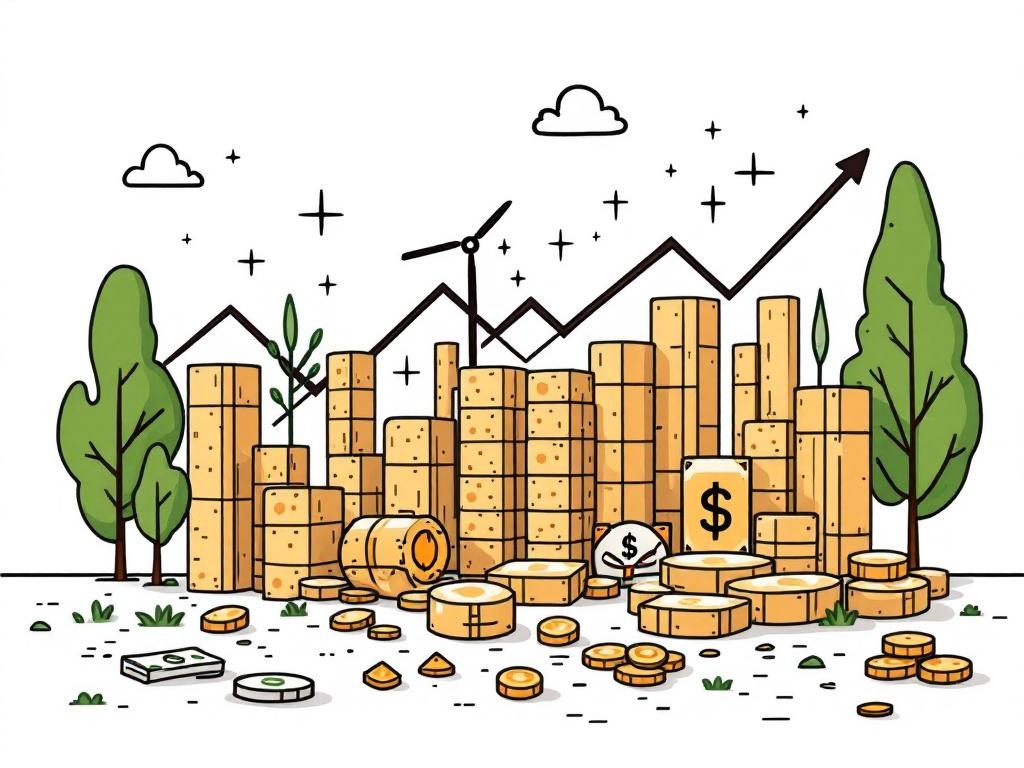Eco-Friendly Energy Push Boosts Biomass Briquette Market to $1.9 Billion by 2033

Washington, Friday, 27 June 2025.
Driven by clean fuel demand and government backing, the biomass briquette market will double to $1.9 billion by 2033, reflecting a global shift to renewable energy amid environmental concerns.
Introduction to Market Dynamics
The biomass briquette market, currently valued at approximately $0.9 billion in 2023, is expected to grow at a compound annual growth rate (CAGR) of 7.9% and reach $1.9 billion by 2033. This growth is largely driven by the rising demand for clean and renewable energy sources, as well as substantial governmental support for eco-friendly initiatives [1]. The market’s expansion reflects a broader global movement towards sustainable energy solutions, addressing the persisting environmental concerns regarding fossil fuel consumption.
Governmental Support and Market Adoption
Government incentives play a pivotal role in the advancement of the biomass briquette market. Regions such as Asia and Africa are particularly active due to their abundance of agricultural residues and rural energy requirements. Governments in these regions have implemented policies that promote the use of biomass as an alternative energy source, contributing to the sector’s growth [1]. Meanwhile, in the United States, initiatives like carbon pricing and investments in pelletization have made biomass briquettes a more competitive option, with predictions of them being 15% cheaper than fossil fuels by 2025 [2].
Industrial Applications and Environmental Impact
Industries, notably in manufacturing and power generation, are increasingly adopting biomass briquettes due to their cost-efficiency and reduced carbon emissions. The U.S. biomass briquette market, for example, benefited from a 6% CAGR in the early 2020s, and substantial investment in production capacity helped reduce costs by up to 12% [2]. In Southern India, the demand for biomass fuel is rising, evidenced by a recent tender invitation from the Kerala Cooperative Milk Marketing Federation for 2680 metric tons of biomass briquettes, highlighting their diverse industrial applications beyond traditional power plants [3].
Conclusion: A Sustainable Energy Future
The growth trajectory of the biomass briquette market underscores a significant shift towards sustainable energy practices. With continued governmental support and industrial adoption, biomass briquettes are positioned to become a cornerstone of global renewable energy strategies by 2033. This transformation is crucial for reducing dependence on fossil fuels and mitigating environmental impacts, making biomass a vital player in the transition to renewable energy solutions [1][3].